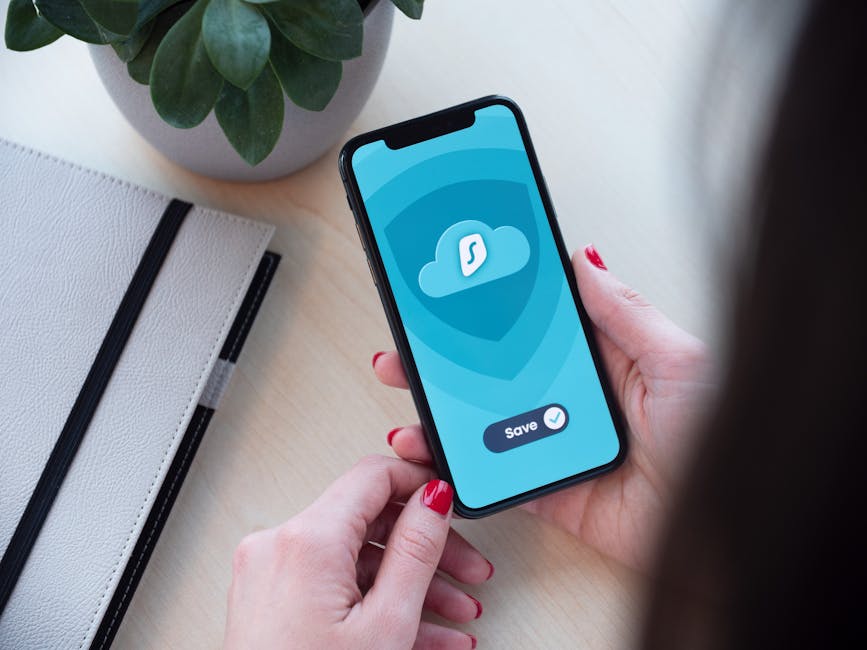Mastering Online Privacy: Your Guide to Protection

Welcome, dear reader, to the wild and wacky world of online privacy. In a world where hackers lurk around every virtual corner and advertisers track your every click, it can feel like navigating the web is more treacherous than a blindfolded tightrope walk. But fear not, brave internet explorer, for we are here to guide you through the murky waters of online privacy with wit, wisdom, and maybe a few memes along the way. So buckle up, buttercup, it’s time to become a master of your own digital domain.
Understanding Online Privacy: A Comprehensive Overview
When it comes to online privacy, it’s like trying to hide that embarrassing photo from your high school reunion – nearly impossible! But fear not, brave internet explorer, for I am here to give you a crash course in all things digital secrecy.
First off, let’s talk about cookies. No, not the delicious, crumbly kind that Nana makes – I’m talking about those sneaky little snippets of code that websites use to track your every move. They’re like the invisible detectives of the internet, always watching and waiting to report back to their website overlords. But fear not, for you can fight back with blockers and incognito mode! Take that, cookie monsters!
Next up, let’s dive into the murky waters of data breaches. These are like the surprise parties you never signed up for – except instead of balloons and cake, you get identity theft and credit card fraud. Remember to always read those pesky privacy policies and never share your passwords with anyone (not even your BFF).
And finally, let’s touch on the importance of encryption. It’s like sending your secrets in a locked box instead of scrawling them on a postcard for the mailman to read. So, be sure to look for that little padlock symbol in your browser and keep your conversations as secure as Fort Knox. Now go forth, my privacy-savvy friends, and surf the web with confidence!

Assessing Your Digital Footprint: Tips for Monitoring Your Online Presence
So, you think you’re pretty slick online, huh? Time to put on your detective hat and do some serious monitoring of your digital footprint. Here are some tips to keep tabs on your online presence:
First things first, Google yourself. No, not in a creepy way. Just type your name into the search bar and see what pops up. You might be surprised by what you find – like that embarrassing photo from your high school prom or that embarrassing status update from ten years ago. It’s like a digital time capsule of shame!
Next, set up Google Alerts for your name. That way, you’ll be notified whenever someone mentions you online. It’s like having your own personal stalker, but in a good way. Plus, it’s a great way to keep track of what people are saying about you (spoiler alert: it’s probably not all good).
And last but not least, don’t forget to clean up your social media profiles. Delete any old posts or photos that you wouldn’t want your grandma to see. And for the love of Mark Zuckerberg, set your privacy settings to private! You never know who’s creeping on your profile – it could be your boss, your ex, or that weird guy from high school who still messages you “hey” every six months.

Implementing Strong Password Practices: Strategies for Secure Data Protection
Creating strong password practices is like building a fortress around your data – except without the moat and knights in shining armor. But fear not, brave digital warrior! With the right strategies, you can protect your precious information from the marauding hordes of cyber threats. Here are some tips to keep your passwords as impenetrable as a dragon’s lair:
First and foremost, **never use “password” as your password**. Seriously, that’s just asking for trouble. Instead, opt for a mix of uppercase letters, lowercase letters, numbers, and special characters. Think of it as creating a secret code only you and your trusted allies can decipher.
Additionally, don’t rely on obvious personal information like your birthday or pet’s name. Hackers are cunning creatures who can sniff out such vulnerabilities faster than you can say “password123”. Instead, **choose a passphrase that’s meaningful to you but cryptic to others**. Maybe something like “IWillDefeatCyberGoblins!” or “UnicornPrincess42”. Just don’t use those exact examples – I’m onto you, cyber trickster!
Lastly, practice good password hygiene by changing your passwords regularly. It’s like giving your digital locks a much-needed makeover to keep those cyber burglars at bay. And remember, a strong password is your greatest defense against the dark arts of hacking. So, go forth and fortify your defenses, noble password warrior!

Navigating Privacy Settings: How to Safeguard Your Personal Information on Social Media Platforms
So, you’ve decided it’s time to take your privacy seriously on social media. Good for you! No more accidentally sharing embarrassing selfies with your aunt or having targeted ads follow you around the internet like a stubborn stalker. Let’s dive into how you can navigate those tricky privacy settings and keep your personal information safe and sound.
First things first, **check your default privacy settings**. Don’t just assume that the platforms have your best interests at heart – they’re probably out there selling your data to the highest bidder. Go through each setting with a fine-tooth comb and make sure you’re only sharing what you want to share. Trust me, you don’t want your high school crush knowing your every move.
**Be picky about your friends and followers**. Just because someone sent you a friend request doesn’t mean you have to accept it. Do you really want that random person from halfway across the world seeing your vacation photos? I think not. Keep your circle tight and your information safe from prying eyes.
Oh, and **don’t forget about those pesky app permissions**. Sure, that fun quiz may seem harmless, but do you really want it accessing your entire contact list? Probably not. Go through your apps and revoke any unnecessary permissions. Your data is valuable – don’t just give it away willy-nilly.

Utilizing Virtual Private Networks (VPNs) for Enhanced Security
Let’s talk about how to add an extra layer of security to your online activities with the help of Virtual Private Networks (VPNs). These nifty tools not only keep your data safe from prying eyes but also make you feel like a secret agent browsing the internet in disguise.
With a VPN, you can hide your IP address and encrypt your internet traffic, making it almost impossible for hackers to intercept your sensitive information. It’s like putting on an invisibility cloak every time you go online – except, you know, without the risk of running into a deadly basilisk.
One of the best things about VPNs is that they allow you to access geo-restricted content from anywhere in the world. Want to binge-watch your favorite show that’s only available in another country? No problem! Just connect to a server in that location and voilà – instant access to all the entertainment you can handle.
So, next time you’re surfing the web, consider channeling your inner secret agent and beef up your online security with a VPN. Who knows, maybe you’ll even discover a hidden talent for decoding encrypted messages or sneaking past virtual security guards! Stay safe out there, fellow internet spies.
Staying Up-to-Date on Privacy Laws and Regulations: Compliance Tips for Individuals and Businesses
Privacy laws and regulations can be a real snooze-fest, but staying up-to-date on them is crucial for both individuals and businesses. Lucky for you, I’ve got some compliance tips that are more thrilling than a rollercoaster ride at Six Flags. Strap in, folks!
For Individuals:
- Join a privacy advocacy group like the Electronic Frontier Foundation to stay informed and fight for your rights.
- Regularly review your social media privacy settings to ensure that only those you trust can see your embarrassing vacation photos.
- Read the fine print before clicking “I agree” on any new app or service – you never know what you might be giving away!
For Businesses:
- Assign a dedicated privacy officer to keep tabs on the ever-changing landscape of privacy laws and regulations.
- Implement regular privacy training sessions for employees – because not everyone knows that sharing their password with the office goldfish is a bad idea.
- Stay in the loop with industry news and attend conferences to connect with other privacy-minded folks – after all, it’s always better to be in the know than to be caught with your pants down.
Safeguarding Against Phishing Scams: Techniques for Identifying and Avoiding Online Threats
So you think you can outsmart those sneaky phishing scammers, huh? Well, buckle up buttercup because we’re about to drop some knowledge bombs on how to identify and avoid those online threats like a pro.
First things first, keep an eagle eye out for any suspicious emails asking for personal or financial information. If it seems fishy (pun intended), it probably is. Look for misspelled words, weird email addresses, and any urgent demands for your info. Ain’t nobody got time for that!
Next up, don’t be lured in by any fancy links or attachments. Hover your cursor over those bad boys and check out the actual URL. If it looks like a jumbled mess of nonsense or doesn’t match the supposed sender, run for the hills (or just hit delete).
And last but not least, don’t be fooled by those crafty pop-up windows or fake websites. Always double-check the legitimacy of the site by looking for secure connections (hello green lock icon) and trusting your instincts. If it feels off, it probably is.
FAQs
How can I protect my personal information online?
Imagine your personal information is like a treasure chest filled with gold coins. Would you leave it unattended in the middle of a crowded street? Of course not! Treat your personal information with the same level of care and caution. Invest in security software, use strong passwords, and be wary of sketchy websites asking for your info.
What are some common privacy threats I should be aware of?
Picture a battlefield filled with cunning adversaries trying to infiltrate your castle of personal information. From phishing scams to malware attacks, the online world is a dangerous place. Stay vigilant and always be on guard against these sneaky privacy threats.
Why do I need to be cautious about my social media presence?
Think of your social media accounts as a window into your soul. Everything you post, like, and share can be used to create a digital footprint of your life. Be mindful of what you share online, as once it’s out there, it’s like trying to put toothpaste back in the tube – nearly impossible.
How can I keep my online transactions secure?
Imagine you’re exchanging secret packages with a spy in a dark alley – you wouldn’t want someone snooping in on that, would you? Treat your online transactions with the same level of secrecy. Only shop on secure websites, avoid public Wi-Fi for sensitive transactions, and always double-check that “https://” before entering your credit card info.
Stay Safe, Internet Explorers!
Remember, the online world can be a wild and wacky place, so don’t let your personal information roam free like a lost puppy! With the tips and tricks you’ve learned here, you can now navigate the digital landscape with confidence and ninja-like stealth. Stay vigilant, stay wise, and most importantly, stay fabulous while mastering your online privacy. Happy surfing! 🌊🕶️






